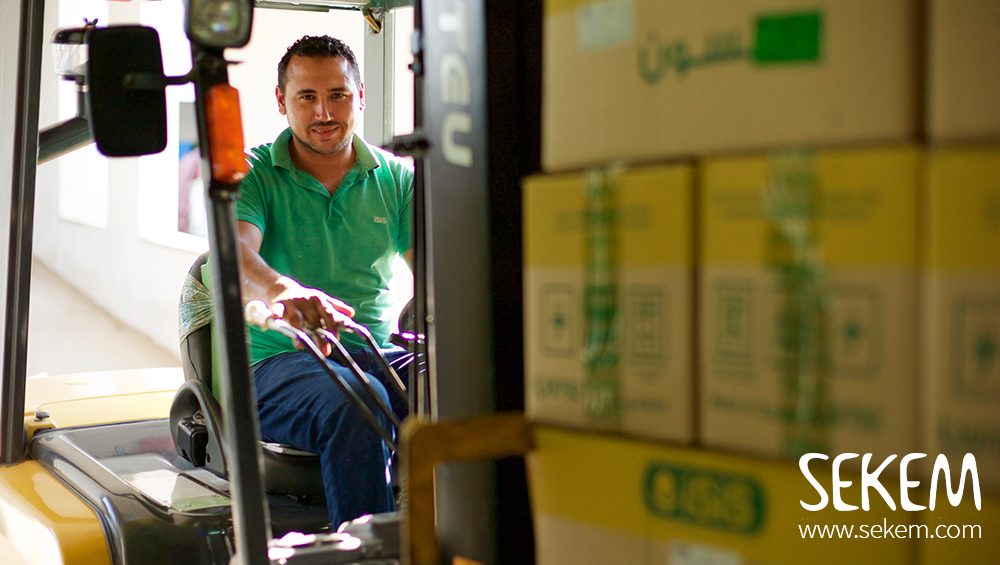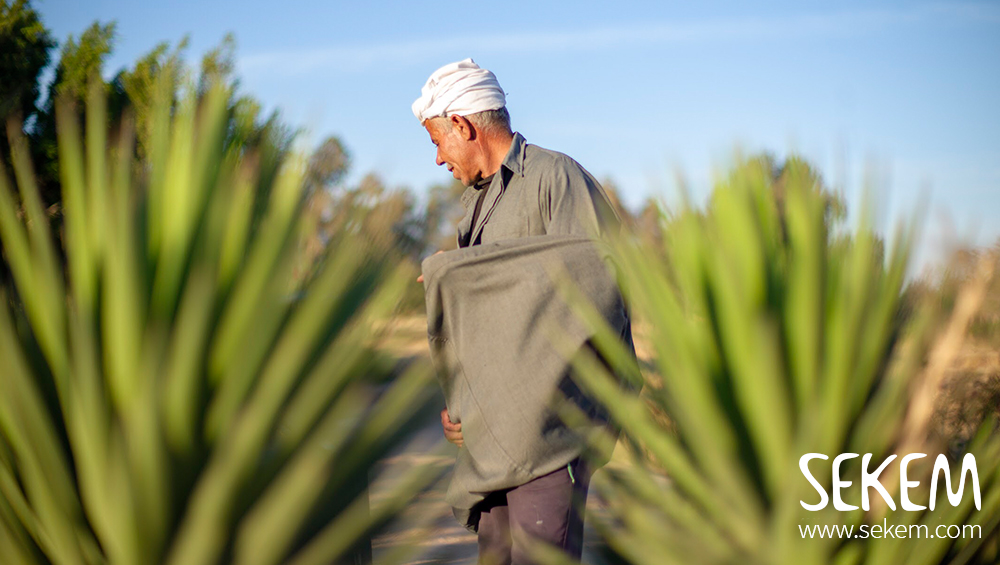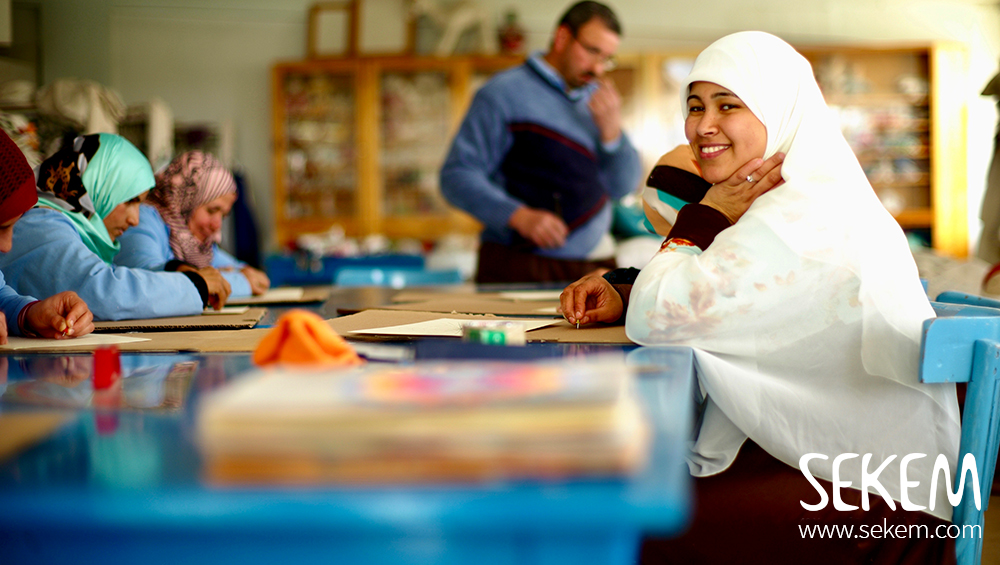The concept of an “Economy of Love” has been an integral part of SEKEM’s economic activities already for many years. It had been an important concern to SEKEM founder Ibrahim Abouleish, to promote an economic model that is transparent along the entire value chain and that does not only guarantee fair prices, but also considers and promotes development opportunities for people. “If at the end of a year it can be shown that dead land has been vitalized by biodynamic methods and that people have learned through work, it is not a lost business – even if a company operated in the red,” he wrote in his autobiography.
Although SEKEM started already decades ago to implement such an “Economy of Love” and practically applies it in many areas, there are still a number of sectors and criteria that need to be further developed in order to make an “Economy of Love” really visible for each individual involved. “We do not only speak about the farmers who grow of foods or the traders from whom we buy our packaging material, but also for instance the forest worker who drops the tree for the paper on which we print our tea packs or the driver who transports the paper then from A to B,” explains SEKEM CEO Helmy Abouleish. Because, although SEKEM is able to guarantee that the herbs in the tea bag come from sustainable agriculture and from farmers who receive a fair income, these are at most 10% percent of the total product. And although SEKEM also knows and supports the people who process and package the raw materials, there are countless other people and sectors involved in the production of a good – albeit secondary. Or in other words: there are so many more involved parties that have experienced a benefit or disadvantage through the production. Making all those visible seems like a major challenge for a century – for SEKEM it is at least clear that criteria such as the organic certification or fair trade are not sufficient and can only be minimum requirements.

In line with the vision for 2057, SEKEM is once again intensively dealing with the topic of an “Economy of Love” and develops now its own label and certification. The new label shall visualize and promote the sustainable production of a product as comprehensively and holistically as possible.
More than Organic and fair trade
In the spirit of an “Economy of Love”, SEKEMs work on the content is supported by several partners. Hence, for instance, the “economic circle” of the Agricultural Section at the Goetheanum worked on the topic and the “International Association of Partnership”, which meets twice a year and brings together numerous decision-makers from large Organic companies from all over the world, also provides professional advices. “Our aim is to create a label that really holistically considers our concerns and Vision Goals for 2057 in the environmental and economic dimension as well as the cultural and social life, as the Organic certification is not sufficient for that,” says Abouleish. Besides, the limits for the Organic certification are becoming stricter, while the pollution of air and water is worldwide increasing. This makes it more and more difficult for producers to meet the requirements of the Organic certification, even though they followed all the regulations during the cultivation. SEKEM wants to create an alternative and at the same time draw attention to the fact that it is of high importance to apply sustainable agriculture, for which Organic and Biodynamic principles currently offer the best methods, but that is about much more. Pesticide limits are just one of countless criteria for a truly sustainable dealing with nature and the economy. For example, water consumption, carbon footprint or the use of renewable energy have at least the same impact on a responsible agriculture; and raising awareness, promoting human potential or community building and organizational development are as important as a fair salary or social security in terms of ethical economics.
Capturing human needs and the environment in their integrity
The new “Economy of Love” label wants to guarantee as holistically as possible that the production does neither harm the environment nor the people but rather supports them. “To summarize, we want consumers to be able to answer three basic questions about the product they buy, namely: What impact does the production process of a product have on the environment, the people and community, and the cultural development as well as individual potential unfolding opportunities of all involved parties in the value creation (including consumers)?” tells Helmy Abouleish.

After all, an “Economy of Love” wants the healing and development of people, society and the earth – a balanced interaction of ecology, economy, social and cultural aspects. Because: Economy is never possible without culture, society and nature. The “Economy of Love”, that SEKEM now wants to promote and implement, puts the human being in its integrity, with all its needs and in its integral context – considering nature as its livelihood, society as its social space and culture as his spiritual basis of consciousness – in the center. The criteria and implementation for such a label are currently being developed in SEKEM.
Christine Arlt
Interview on the topic Fairtrade at SEKEM
Economy of Love and desertification
SEKEM’s Annual Spring Festival Inspired by “Economy of Love"

